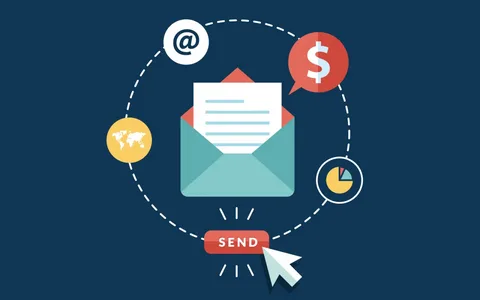In the digital age, where communication channels abound, email marketing remains a powerful and versatile tool for businesses to connect with their audience. Crafting effective email campaigns requires finesse and a strategic approach. In this article, we delve into the art of effective email marketing, exploring key strategies to engage recipients, drive conversions, and build lasting relationships.
Segmentation for Personalization
One-size-fits-all emails are a thing of the past. Effective email marketing begins with understanding your audience and segmenting your email list. Tailor content to specific segments, ensuring that recipients receive relevant and personalized messages that resonate with their interests.
Data-Driven Insights
Leverage data-driven insights to understand audience behavior. Analyze open rates, click-through rates, and conversion metrics to refine your email strategy. By understanding what resonates with your audience, you can continuously optimize your campaigns for better results.
Subject Lines that Intrigue
The subject line is your email’s first impression. Craft compelling subject lines that intrigue and entice recipients to open the email. Keep it concise, relevant, and consider using personalization to capture attention.
Optimizing Preheaders
Preheaders, the snippet of text displayed after the subject line, offer additional real estate to capture interest. Use this space wisely to complement the subject line, providing a sneak peek into the content and encouraging recipients to open the email.
Clear and Concise Messaging
The attention span of email recipients is limited. Craft clear and concise messages that get straight to the point. Use compelling language, visuals, and a mobile-responsive design to ensure a seamless experience across devices.
Value-Driven Content
Deliver value in every email. Whether it’s informative content, exclusive offers, or relevant updates, ensure that your emails provide something meaningful to the recipient. Value-driven content builds trust and encourages engagement.
Compelling CTAs
A strategically placed and compelling call-to-action (CTA) is pivotal for driving conversions. Use action-oriented language and ensure that the CTA stands out visually. Whether it’s making a purchase, signing up, or downloading, the CTA should guide recipients on the desired action.
Creating a Sense of Urgency
Incorporate urgency into your CTAs when appropriate. Limited-time offers or exclusive deals create a sense of urgency, prompting recipients to take immediate action. Ensure that urgency is genuine and aligned with your campaign objectives.
Mobile-Responsive Design
A significant portion of email opens occurs on mobile devices. Ensure that your emails have a mobile-responsive design, providing a seamless experience on smartphones and tablets. Test your emails across various devices and email clients to guarantee compatibility.
Concise and Scannable Content
Mobile users often engage with content in a quick, on-the-go manner. Keep your content concise, scannable, and easy to digest on smaller screens. Use short paragraphs, bullet points, and compelling visuals to maintain engagement.
A/B Testing
Refine your email strategy through A/B testing. Experiment with variations in subject lines, content, visuals, and CTAs to identify what resonates best with your audience. A/B testing provides valuable insights for continuous improvement.
Iterative Optimization
Email marketing is an iterative process. Use the insights gained from analytics and testing to optimize future campaigns. Pay attention to trends, adapt to changing audience preferences, and stay ahead of the curve in the evolving landscape of digital marketing.
Conclusion
The art of effective email marketing lies in the seamless blend of strategy, creativity, and understanding your audience. By segmenting your audience, crafting compelling subject lines, delivering engaging and relevant content, strategically placing CTAs, optimizing for mobile devices, and embracing testing and iteration, you can elevate your email marketing efforts. Successful email campaigns not only drive conversions but also foster lasting relationships with your audience, making email marketing an invaluable tool in your digital marketing arsenal.





























